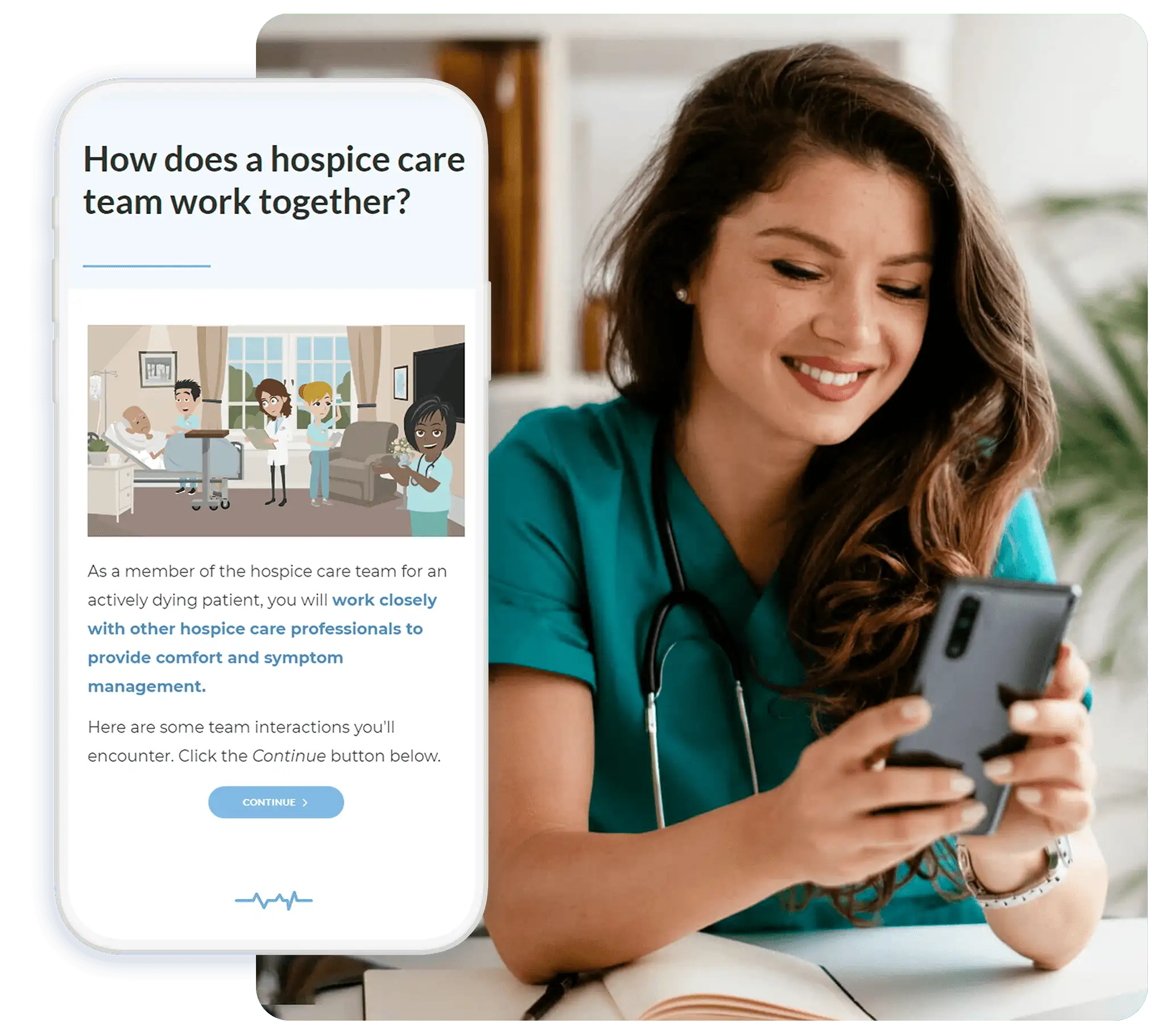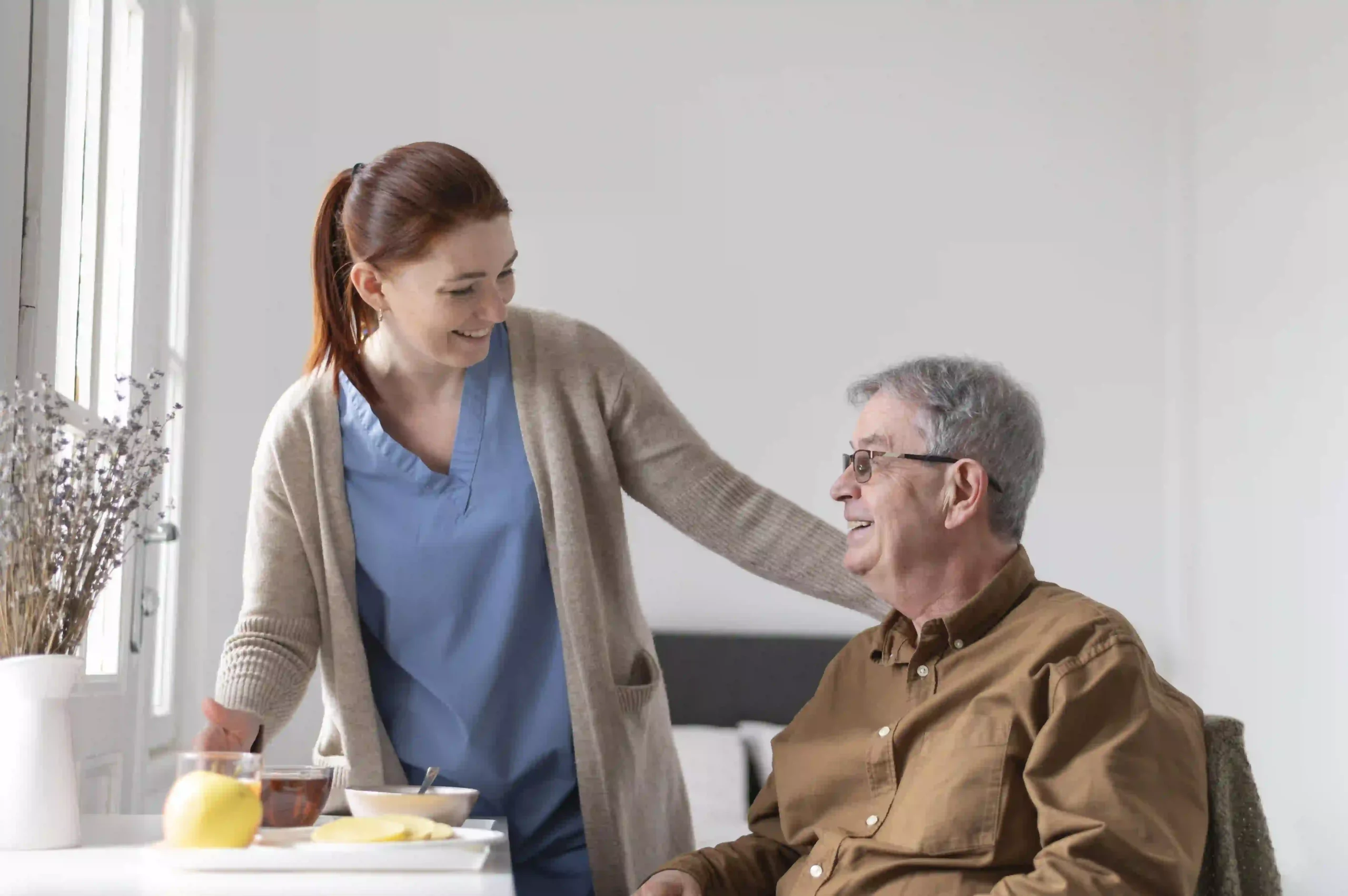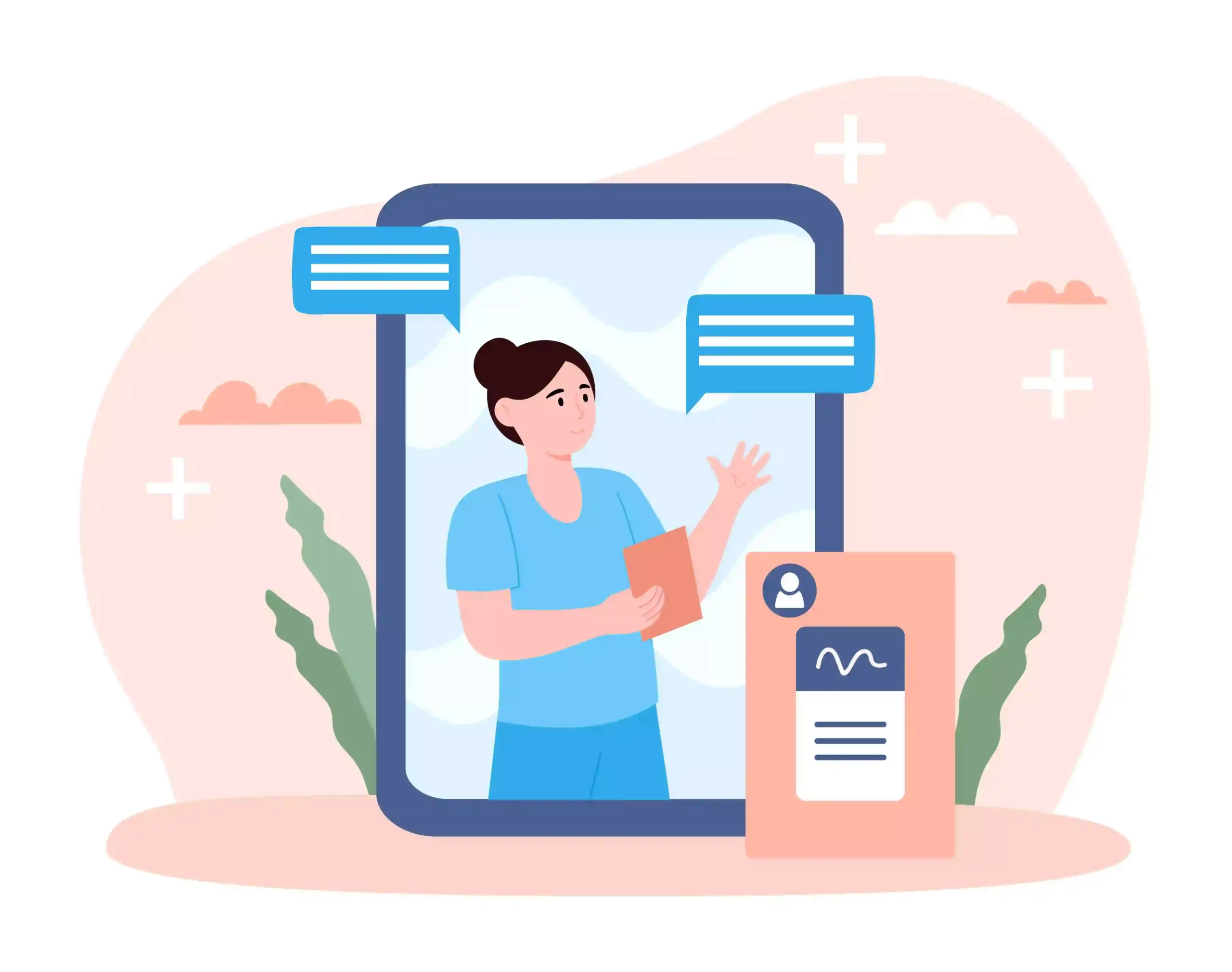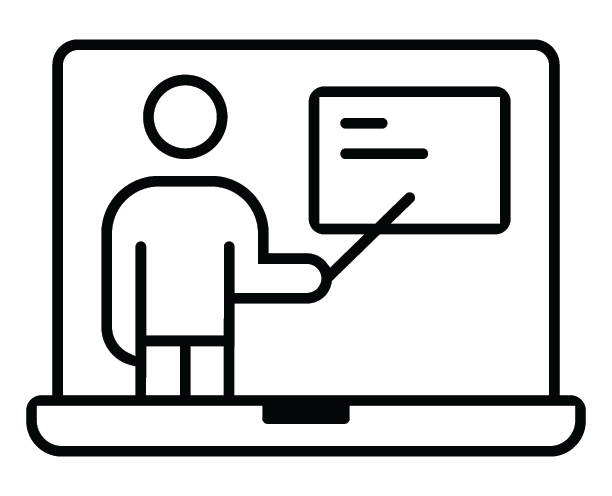Florida Caregiver Requirements: A Comprehensive Guide
Hello to my fellow resident of Florida. We are all aware that the Florida caregiver requirements can be a bit challenging to comprehend. Let’s simplify our home state’s rules and regulations!
The Sunshine State is home to over 21 million people, many of whom require the care and support of dedicated caregivers. As a home health, home care, or hospice professional or someone new to caregiving, it’s crucial to understand the requirements.
This guide will explore the various caregiver roles, initial onboarding training, and annual training requirements specific to Florida, and solutions to meet the requirements. So, let’s dive in!

Who’s Who? Defining Caregiver Requirements in Florida
In Florida, caregivers are referred to by several titles, depending on their roles and responsibilities. Here’s a handy list of caregiver titles commonly used in the state:
- Caregivers and Caretakers
- Home Health Aides (HHAs)
- Assisted Living Facility Staff
- Direct Care Workers (for Alzheimer’s disease & related dementias)
- Certified Nursing Assistants (CNAs)
Initial Onboarding Training Requirements
Before a caregiver can start working with patients, they must complete the required initial onboarding training, which varies depending on their job role. Below is a breakdown of the initial onboarding training hours for each caregiver role in Florida:
- Caregivers – do not have initial training or competency requirements. However, there are some basic requirements. Read more on those below.
- Home Health Aides (HHAs) with state-licensed agencies – 40 hours
- Home Health Aides (HHAs) with Medicare-certified agencies – 75 hours
- Assisted Living Staff – hours specific to topic areas and job role
- Direct Care Workers (DCW) for Alzheimer’s disease and related dementias (ADRD) – 2 hours
- Certified Nursing Assistant (CNAs) – 120 hours
You might ask, “Which governing bodies oversee Florida caregiver requirements, and where can I read up on the initial requirements”? Again, let’s put together a helpful list with some links to help you understand which authorities establish the rules and regulations caregivers must adhere to and get you to the correct info.
- Certified Nursing Assistants:
- Home Health Aides (HHAs):
- Direct Care Workers (DCWs):
Read through those links to understand each role’s unique initial and ongoing Training requirements.

CONTINUA LEARNING
Simplify Your Agency's Compliance Training and Skill Building
A complete solution: more than 350 courses, 500+ CEUs, caregiver in-services, training plans, and more.
Annual Training Requirements
To maintain their skills and ensure continued compliance, caregivers in Florida must complete a certain number of annual training hours. The requirements for annual Training vary based on the caregiver’s role:
- Caregivers and Caretakers – There are no ongoing license requirements for non-medical home care in Florida.
- Home Health Aides (HHAs) with state-licensed agencies – do not have an annual training requirement.
- Home Health Aides (HHAs) with Medicare-certified agencies – 12 hours
- Assisted Living Staff – hours specific to topic areas and job role
- Direct Care Workers (DCW) for ADRD – do not have an annual training requirement
- Certified Nursing Assistants (CNAs) – 24 hours every two years
Next, we’ll dive deeper in what it takes to meet the caregiver role in Florida.
Florida Caregiver Requirements
As discussed above, the Caregiver role in Florida does not require initial or ongoing training. However, some requirements must be met. Here are the must-haves to be a Florida Caregiver:
- Age and responsibility matter: You’ve got to be at least 18 years old, ready to offer a cozy, family-like environment, and eager to take on the responsibility of caring for someone’s social, physical, and emotional needs.
- Familiarity is key: Are you a relative or friend who’s been welcomed by the client as their chosen family? Or you’re a responsible grown-up who arranged with the client to offer home care services. If yes, then you’re on the right track!
- All hands on deck: You’re not just supervising from the sidelines; you’re actively engaged in arranging services and lending a helping hand to the person you care for.
- Home sweet home: Ensure the living space you provide is safe, clean, and free of any hazards that could put your client’s life, health, or well-being at risk. Read more about rule 58H-1.007.
- Clean record, clear conscience: You should have a squeaky-clean record with no history of abusing, neglecting, or exploiting others.
It’s worth your time to review Florida’s Caregiver Requirements in detail. Next, let’s get into the training requirements for both HHAs and CNAs, something Continua Learning specializes in. Let’s start with HHAs.

Florida Home Health Aides Training Requirements
Initial Training Requirements
Typically, Home Health Aides that are working for Medicare-certified agencies will start with an agency after gaining a certificate from a 3rd party provider.
For every home health aide working with a home health agency, records must prove they’ve completed at least 40 hours of Training in the required subject areas or successfully passed the home health aide competency test.
Here’s a handy table that matches Florida’s requirements with our in-service offerings for Florida home health aides. All of our CNA/HHA courses offer 1 CEU. In reality there’s quite a bit of crossover between HHA and CNA duties, therefore we’ve included those.
| Florida Requirement | Continua Learning Equivalent Course |
| Communication skills | Communicating with Cognitively-Impaired Patients |
| Observation, reporting and documentation of patient or client status and the care or services provided | Documentation & Legal Aspects for Florida CNAs Prevention of Medical Errors for Home Health Aides and CNAs |
| Reading and recording temperature, pulse and respiration | Vital Signs |
| Basic infection control procedures | Infection Control in the Home Care Workplace Bloodborne Pathogens and Standard Precautions |
| Basic elements of body functions that must be reported to the registered nurse supervisor | Basics of Body Functioning Also, can include a number of more specific disease training for this |
| Maintenance of a clean and safe environment | Maintaining a Clean and Safe Environment Driving and Workplace Safety and Injury Prevention |
| Recognition of emergencies and applicable follow-up within the home health aide scope of performance | Emergency Recognition and Follow-up |
| Physical, emotional, and developmental characteristics of the populations served by the agency, including the need for respect for the patient or client, his privacy, and his property | HIPAA for Home Health |
| Appropriate and safe techniques in personal hygiene and grooming, including bed bath, sponge, tub, or shower bath; shampoo, sink, tub, or bed; nail and skin care; oral hygiene; care of dentures | Activities of Daily Living for the Elderly Personal Care Care of The Skin |
| Safe transfer techniques, including use of appropriate equipment, and ambulation | How to Transfer and Lift Patients Safely |
| Normal range of motion and positioning | Range of Motion and Positioning |
| Nutrition and fluid intake | Basic Nutrition Malnutrition and Dehydration |
| Cultural differences in families | Diversity in the Home Care Workplace |
| Food preparation and household chores | Basic Food Preparation |
| Other topics pertinent to home health aide services | Continua Learning has dozens more in-services to meet this requirement |
Alzheimer’s disease or other related disorders (ADRD) Training Requirements
When joining a home health agency, every new employee needs to be equipped with essential written information on how to interact with patients living with Alzheimer’s or dementia-related disorders. HHAs and CNAs are no exception.
Moreover, freshly hired staff members who’ll directly care for patients must complete a 2-hour training session on Alzheimer’s and dementia-related disorders within their first nine months. For certified nursing assistants, these 2 hours of training are included in their annual training hour requirements (ADRD: 400.4785).
| Florida Requirement | Continua Learning Course |
| 2 hours of training in Alzheimer’s disease and dementia related disorders | 2 Hour Alzheimer’s Disease and Related Disorder (FL home health approved) |
Ongoing Training Requirements
Home health aides working for agencies or nurse registries must take an HIV/AIDS course and maintain a CPR certification. Those employed by Medicare and Medicaid agencies need 12 hours of in-service training yearly, with the HIV/AIDS and CPR courses counting towards those hours.
An annual training plan for Florida HHAs might looks something like this based on the requirements:
| Florida Requirement | Continua Learning Course or Recommendation |
| Requirement to obtain and maintain a current certificate in cardiopulmonary resuscitation (CPR) | American Heart Association or the American Red Cross CPR certificate |
| HIV/AIDS training | Overview of HIV |
| 12 hours of annual in-service training | Continua offers dozens of options, such as those in the above table and topics like: Caring for Patients with Dementia Caring for Patients with Diabetes Seizures and Strokes Elder Neglect and Abuse Medication Safety Pain Management Psychosocial Care Respiratory Disorders Overview of Cancer Care And many more! |

Florida Certified Nursing Assistant Training Requirements
Initial Training Requirement
CNAs in Florida have two paths to get accredited with a license. Here’s what the Florida Board of Nursing says: To become a Certified Nursing Assistant (CNA) by Examination, pass the background check and meet one of these requirements:
- Complete an approved training program, then score the minimum required on the nursing assistant competency exam (both written and skills portions).
- Score the minimum required on the competency exam (written and skills portions) if you have a high school diploma (or equivalent) or are at least 18.
- Finish the curriculum under the Enterprise Florida Jobs and Education Partnership Grant and score the minimum required on the competency exam (written and skills portions).
Next, let’s take a look at the annual training requirements for CNAs in Florida.
Ongoing Training Requirements
The Florida Board of Nursing regulates CNAs and what they need to learn. As floridanursing.gov says, “All CNAs must finish at least 24 hours of in-service training every two years.” There are specific topics they can’t skip. Let’s dive into those areas and see how they align with Continua Learning.
| Florida Board of Nursing Requirement | Continua Learning Course or Recommendation |
| Bloodborne Pathogens, Infection Control | Infection Control: HAI, Handwashing, Bloodborne, Airborne/Contact/Droplet, PPE, Infectious Waste |
| Domestic Violence | Domestic Violence and Elder Abuse for Home Care (2hr) Elder Neglect and Abuse (1hr) |
| Medical Record Documentation and Legal Aspects Appropriate to Nursing Assistants | Documentation & Legal Aspects for Florida CNAs |
| Resident Rights | Patient Rights and Advance Directives |
| Communication with cognitively impaired clients | Addressing Communication Barriers Communicating with Cognitively-Impaired Patients |
| CPR skills | American Heart Association or the American Red Cross CPR certificate |
| Medical Error Prevention and Safety | Prevention of Medical Errors for Home Health Aides and CNAs |
| Additional training to meet the 24 hour every two years | Continua offers 100s of additional home health, home care, and hospice courses with over 500 CEUs |

Meeting Florida Caregiver Requirements with Confidence
If you’re an agency manager or director, ensuring your team meets Florida’s caregiver requirements is crucial. By creating a solid system to manage caregiver training, you’ll comply with state regulations and empower your caregivers to excel. Here are some handy tips to effectively manage caregiver training:
Embrace an Online Training Solution
We’re biased, but investing in a mobile-ready, online solution tailored for home health and hospice agencies to organize and track training for all caregivers is the best way to meet your requirements. A top-notch solution will have the relevant content and features your agency needs to streamline the process
Create Caregiver Training Plans
Make meeting annual training requirements a breeze by creating training plans with specific due dates or drip feed your training each month to staff. Mix in-person workshops and online courses for a well-rounded training experience (just be sure you have an online solution that can track in-person training too!)

Create Training Courses
Training providers offer 100s of courses to help meet your needs, but you’ll likely want to train your caregivers on your unique care techniques. Always choose an online training provider that offers custom course creation services as part of the online solution.
Communicate Expectations
Ensure every caregiver understands the training expectations and requirements by including this information in onboarding materials and discussing it during team meetings or evaluations. Keeping everyone on the same page is key!
Tailor Training to Specific Roles
Remember, training requirements vary based on the caregiver’s role. Group your caregivers based on their job duties and craft targeted training plans accordingly.
Keep an Eye on Training Compliance
Regularly run reports in your solution to confirm all caregivers meet their requirements. Consistent reporting helps maintain compliance and allows you to address any gaps.
By following these tips, you’ll confidently meet Florida caregiver requirements while fostering a well-trained and knowledgeable team ready to provide exceptional care.
Final Word on Florida Caregiver Requirements
Understanding and meeting Florida caregiver requirements is essential to running a successful home health, home care, or hospice agency. By familiarizing yourself with the various caregiver roles, initial onboarding training, and annual training requirements, you can ensure your agency remains compliant and provides high-quality patient care.
FAQ
How do I get a Caregiver License in Florida?
In Florida, caregiver licenses are managed at the state level. To become a licensed caregiver, individuals must meet specific training and certification requirements, which vary depending on the type of caregiving role.
Do You Need a License to Be a Caregiver in Florida?
Yes, in Florida, a license is required for certain types of caregiving roles, especially those involving medical or personal care. The specific requirements depend on the nature of the caregiver’s duties and the setting in which they work.
What Florida Caregiver Training Do I Need?
Caregiver training in Florida is essential to ensure quality care. The state mandates specific training programs for different caregiving roles, focusing on patient safety, basic care procedures, and understanding of health conditions.
How do I Become a Home Health Aide in Florida?
To become a Home Health Aide in Florida, one must complete a state-approved training program, which includes both classroom instruction and hands-on clinical experience, followed by a competency evaluation.
How do I Become a Certified Caregiver in Florida?
Becoming a certified caregiver in Florida involves completing a state-approved education program, passing a background check, and meeting any additional requirements specific to the caregiver’s desired role.
What are the Florida CNA Requirements?
To become a Certified Nursing Assistant (CNA) in Florida, candidates must complete a state-approved nursing assistant training program and pass the Florida CNA exam. Additionally, they must meet other criteria like a background check and continuing education.
Can a family member get paid to be a caregiver in Florida?
Absolutely! In Florida, there’s a program called the Paid Family Caregiver Program that offers financial support to eligible family members who provide care for their loved ones at home. This program helps reduce the financial burden on families and ensures that their loved ones receive personalized care in a familiar and comfortable environment. To find out if you’re eligible and learn more about the program, contact your local Area Agency on Aging or visit the Florida Department of Elder Affairs website.
How do I become a paid caregiver for a family member in Florida?
Becoming a paid caregiver for a family member in Florida involves a few key steps. Let’s break it down for you:
- Assess eligibility: First, you’ll need to check if your family member qualifies for financial assistance programs, such as Florida’s Paid Family Caregiver Program or Medicaid. These programs have specific eligibility criteria, including income limits and medical needs.
- Get trained: Depending on your family member’s needs, you may need to complete a caregiver training program to ensure you’re equipped with the necessary skills and knowledge. Training can vary from basic caregiving courses to more specialized programs, like those for dementia care.
- Apply for financial assistance: Once you’ve determined that your family member is eligible for financial support, you’ll need to apply for the relevant program. This may involve submitting an application, providing proof of your relationship, and demonstrating your ability to provide care.
- Follow program guidelines: Each financial assistance program has its own set of rules and regulations. To receive payment as a family caregiver, you’ll need to adhere to these guidelines, which may include regular check-ins with a case manager, documenting your caregiving duties, and participating in ongoing training. Check Florida’s Caregiver Assistance Program for more details.

